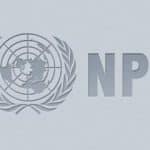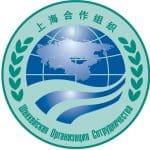What is the Pelindaba Treaty about?
It is also known as the African Nuclear Weapon Free Zone Treaty (ANWFZT) and aims to establish a nuclear weapon- free zone in Africa. It was adopted in 1996 and came into force in 2009 with the 28th country ratifying it. The name Pelindaba comes from South Africa’s main Nuclear Research Centre and the location where South Africa’s atomic bombs of the 1970s were developed, constructed and subsequently stored.
Aim of the treaty
The Treaty prohibits the research, development, manufacture, stockpiling, acquisition, testing, possession, control or stationing of nuclear explosive devices in the territory of parties to the Treaty and the dumping of radioactive wastes in the African zone by Treaty parties.
The Treaty also prohibits any attack against nuclear installations in the zone by Treaty parties and requires them to maintain the highest standards of physical protection of nuclear material, facilities and equipment, which are to be used exclusively for peaceful purposes.
The Treaty requires all parties to apply full-scope International Atomic Energy Agency (IAEA) safeguards to all their peaceful nuclear activities.
A mechanism to verify compliance, including the establishment of the African Commission on Nuclear Energy, has been established by the Treaty.
The Treaty affirms the right of each party to decide for itself whether to allow visits by foreign ships and aircraft to its ports and airfields, explicitly upholds the freedom of navigation on the high seas and does not affect rights to passage through territorial waters guaranteed by international law.
Also read: Indian Government’s Initiatives for overseas Indians
How does the Pelindaba Treaty affects India?
Namibia is the fourth largest producer of Uranium in the world. This led India to sign an agreement on cooperation and peaceful uses of nuclear energy with Namibia in 2009 for long term supply of Uranium to feed it’s nuclear reactors. However, being a member of the Treaty of Pelindaba, Namibia could not ratify the agreement and hence cannot trade in uranium with India as India is not a member of the NPT.
India is likely to ask African countries to relax their commitments to the treaty which controls supply of Uranium from key mineral hubs of Africa to the rest of the world. The President of India during his three nation tour to Africa in June 2016 tried to convince Namibia to ratify the 2009 agreement.
Namibia, which is keen to supply Uranium to India for economic reasons, in turn asked India to come up with similar agreements with other countries to help it convince the ANWFZT members.
So far, India has signed civil nuclear cooperation agreements with 12 countries, including the United States, Russia, Korea and Japan.











